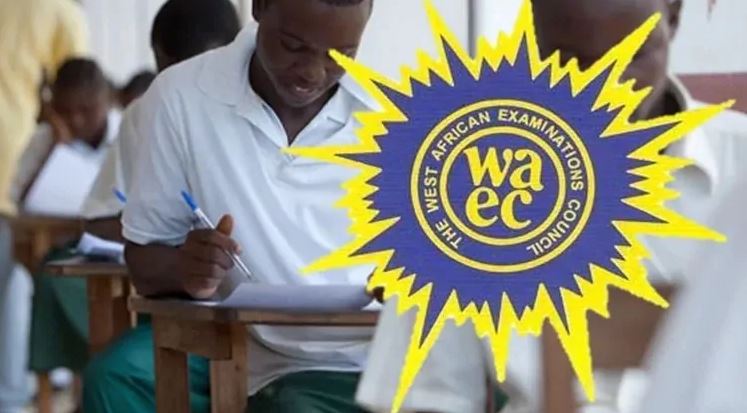WAEC, 2025 WASSCE Results: Why Nigerians must look beyond the noise

The announcement by the West African Examinations Council (WAEC) that it had temporarily suspended access to the 2025 West African Senior School Certificate Examination (WASSCE) results due to technical glitches has naturally generated debate, anxiety, and in some quarters, opportunistic criticisms. Yet, it is precisely in moments like this that society must pause, reflect, and separate facts from sensationalism.
Let us be clear from the start: WAEC’s disclosure of the issue is not a scandal, but a testament to transparency. At a time when many institutions in our country are quick to cover up mistakes, WAEC openly admitted to discovering technical bugs in the results presentation system during an internal review. Rather than letting errors go unnoticed or uncorrected, the Council proactively took the bold step of suspending access and launching a comprehensive audit, with independent ICT experts and oversight from the Federal Ministry of Education. This is what accountability looks like.
What many critics fail to understand is that WAEC is not standing still. The Council has, over the years, sought innovative ways to strengthen the integrity of examinations and curb malpractice. The latest of these innovations is paper serialisation, a system already in use by credible examination bodies worldwide. By introducing subtle variations in exam papers across centres, serialisation makes large-scale cheating nearly impossible.
In 2025, this innovation was deployed in Mathematics, English Language, Biology, and Economics. The fact that the conduct of the examinations proceeded smoothly is in itself a remarkable achievement, considering the logistical challenges of administering standardised exams to hundreds of thousands of candidates across Nigeria.
Yes, the post-exam results release process revealed glitches. But glitches in digital systems are not evidence of systemic rot. They are reminders that even the most advanced institutions, from global banks to tech giants, face technical setbacks. The real test of an institution’s credibility is not the absence of challenges, but the willingness and capacity to confront them openly and fix them swiftly. On this count, WAEC has passed.
Unfortunately, some voices have seized on this temporary hitch to peddle wild allegations of “systemic failure,” “mass failure,” or even “deliberate misconduct” by WAEC. These accusations, often championed by groups more interested in drama than truth, collapse under scrutiny.
Consider the claim of “mass failure” in English Language. Anyone with a modest understanding of education knows that examination bodies assess, they do not teach. If students are underperforming in language proficiency, the responsibility lies with our educational system at large: schools, teachers, policymakers, parents, and indeed students themselves. WAEC cannot be blackmailed into awarding grades as consolation prizes for a declining reading culture. Examinations are mirrors, not make-up kits.
Similarly, rumours of “late-night examinations” are unconvincing. WAEC operates within strict timetables under the watch of supervisors and inspectors. At worst, such incidents, if they occurred at all, were isolated hitches at a handful of centres. To extrapolate them into a narrative of institutional collapse is not only dishonest but mischievous.
WAEC has rightly emphasised that the integrity of scripts and marking is untouched. What happened was limited to the results-checking interface, not the grading of candidates. By temporarily suspending access, the Council protects stakeholders from misinformation and ensures that every candidate’s result reflects their true performance.
This level of responsibility is rare in our public space. It should be commended, not condemned. WAEC could easily have looked the other way, allowing thousands of students to proceed with results that were inaccurately displayed. Instead, it chose the harder, more transparent route: admit the issue, fix it, and reopen the portal with corrected data.
In addition, WAEC is not merely correcting the glitch; it is investing in long-term solutions, upgrading ICT systems, expanding stress-testing, and engaging independent technical partners. This forward-looking approach ensures that the lessons of 2025 will strengthen the system, not weaken it.
For over seventy years, WAEC has been the cornerstone of standardised testing in West Africa. Generations of Nigerians, politicians, doctors, engineers, entrepreneurs, and artists owe part of their journey to the credibility of this institution. To attack its integrity over a resolvable technical issue is short-sighted and unfair.
The Nigerian child, and indeed the African child, deserves an examination body that is resilient, accountable, and transparent. That is exactly what WAEC has demonstrated in this moment. Yes, the delay is inconvenient. Yes, it has caused temporary anxiety. But it also offers reassurance: this is an institution that cares enough to correct its mistakes before they become permanent.
Candidates and schools must therefore exercise patience. Within twenty-four hours of the review, corrected results will be available. The future of students will not be derailed. Admissions will not be disrupted. What matters is that when those results are finally accessed, they will be accurate, credible, and trustworthy. WAEC’s message is simple: we are not perfect, but we are accountable. And in a society where accountability is too often in short supply, that is worth defending.
■ Adamu is a former staff member of WAEC.
WAEC, 2025 WASSCE Results: Why Nigerians must look beyond the noise is first published on The Whistler Newspaper





